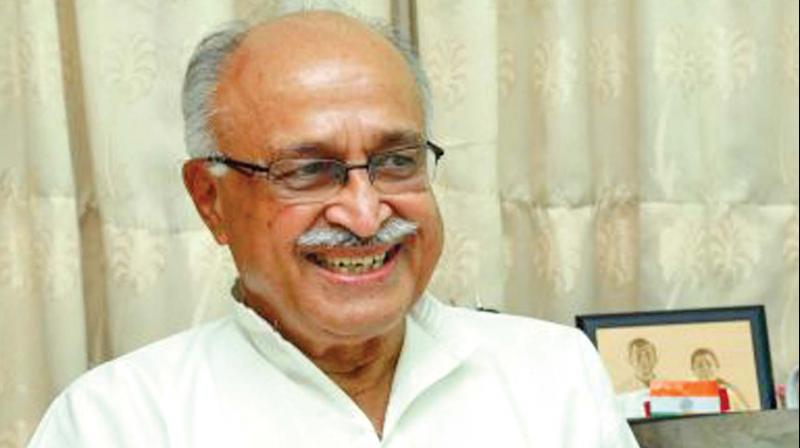Pre emptive strikes are a warning to JeM: Expert
As per media reports, 12 MIG 2000 had gone up to Muzafarabad in Pakistan Occupied Kashmir and launched the strikes.

Chennai: India has mounted an attack on the terror camps operating in Pakistan and in the process employed fighter jets for the first time after the 1971 war with Pakistan.
"We have not crossed the borders to attack (the enemies) since '71 and even during the Kargil war (1999) our fighter jets were not sent across the border. I see it (the pre-emptive air strikes) as a war. India has resorted to this extreme measure after its diplomatic efforts and economic sanctions failed to evoke positive response from Pakistan in dismantling the terror training camps," says Colonel R. Hariharan (retired), a specialist on South Asia military intelligence.
"This is just a warning to Jaish-e-Mohmmad, though India would not want to be a war monger," he added. There is a possibility of Pakistan to start a direct or indirect war through terrorists, he warned and added that Indian armed forces would be full prepared to repulse any attack by the neighbouring country.
The 1971 war with Pakistan was a military confrontation and it resulted in the creation of Bangladesh. The humiliated Pakistani forces surrendered before the Indian forces. In the Kargil (in Kashmir) war, India foiled Pakistan's bid to infiltrate.
On whether the IAF's air strikes on Tuesday in Balakot, Chakothi and Muzaffarabad terror launch pads across LoC, could lead to a war, Col. Hariharan said Indian Foreign Secretary Vijay Gokhale had clearly explained the purport of the strikes, resorted to after all efforts to persuade Pakistan from harbouring or training terrorists failed. "But I don't think it was a severe decision. His statement shows that India does not want to project itself as a war-monger. As per media reports, 12 MIG 2000 had gone up to Muzafarabad in Pakistan Occupied Kashmir and launched the strikes. As far as the strikes are concerned, I see them as war - the last resort after the diplomatic pressure and building world opinion against Pakistan, had failed," he said.
"I think Prime Minister Narendra Modi would have taken the decision in consultation with the chiefs of three forces besides national security adviser," he added. On what next, Col Hariharan said Pakistan has claimed that the Indian air strikes have been fruitless and claimed that IAF retreated when they attempted to retaliate.
"But the truth is Pakistan could not hit back because in the border areas there are numerous factors to be taken into account. Whoever crosses the border can be easily observed through satellite and the movement could be monitored with the radars manned by our army. None can escape these. So, it is not easy for either aircraft or armed forces to cross the borders. But our IAF has gone beyond such barriers that too in PoK a day after Pakistan's Air force commander had warned. This also exposes Pakistan's weakness," he added.
Are there possibilities for a full-fledged war to escalate between the two countries, he told a Tamil television news channel on Tuesday that India would not wish for war. The strikes were a warning to Jaish-e-Mohammad. History showed that Pakistan had always been the first to start the war in 1948, 1965, 1971 and the Kargil conflict in 1999. Pakistan might encourage terrorists to infiltrate and in certain places at our borders India is tactically in a disadvantageous position because "we are situated on downhill - this is where the infiltration could happen. In south J & K, that is from Pathankot to Jammu you can have full view of Pakistan areas from the road. They had once launched an attack from this side." " Our armed forces would be prepared but what I am saying is about the probabilities," he added.

